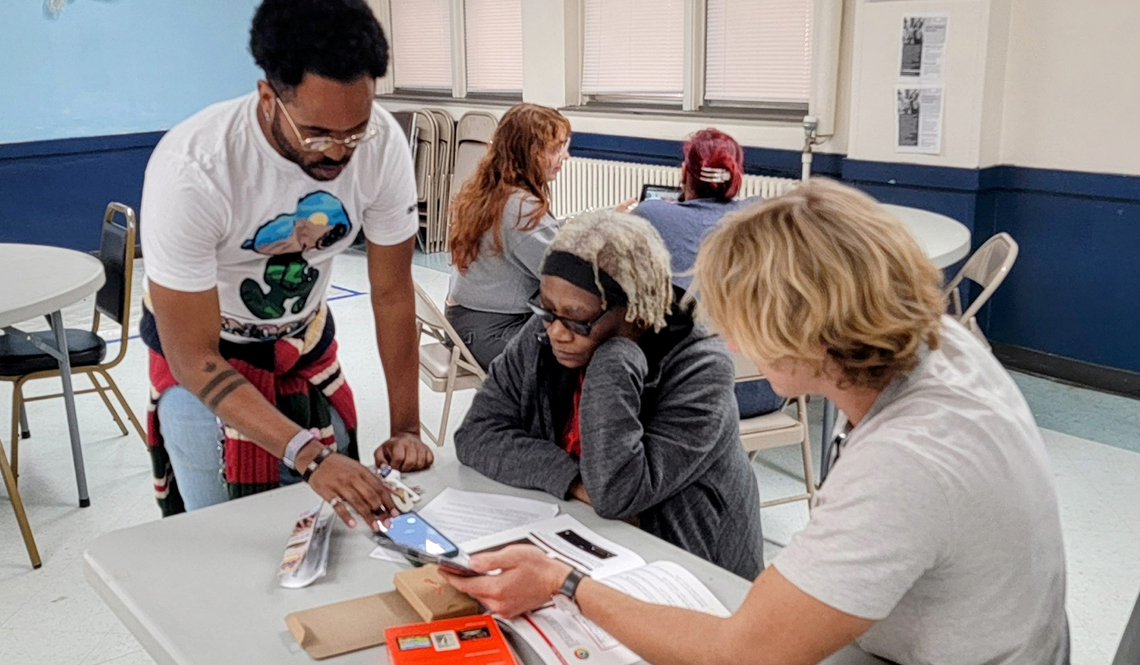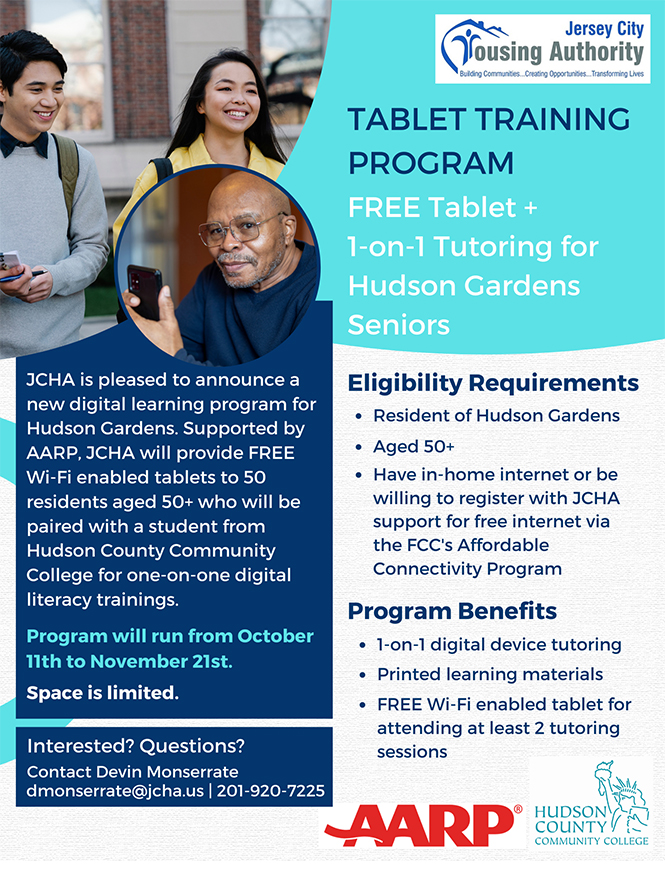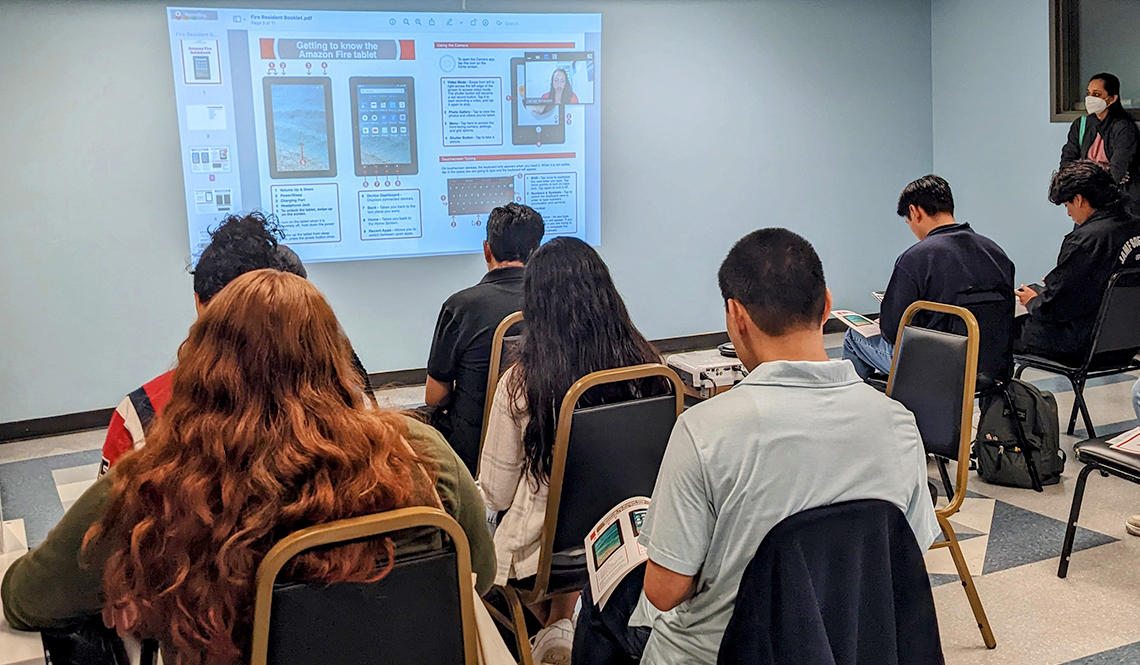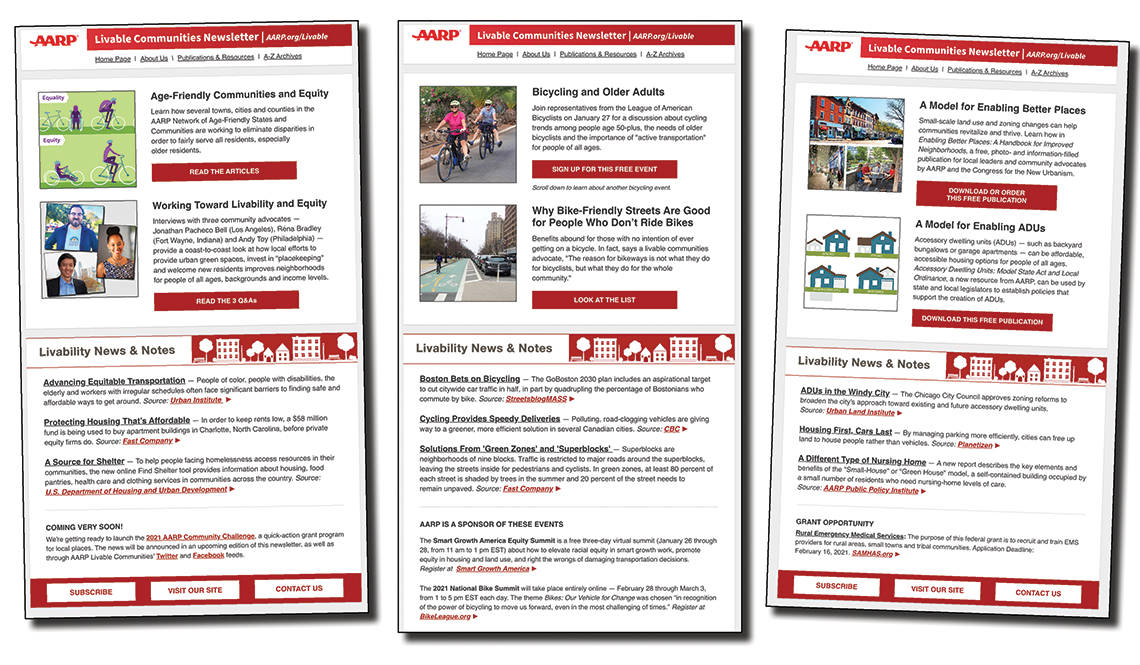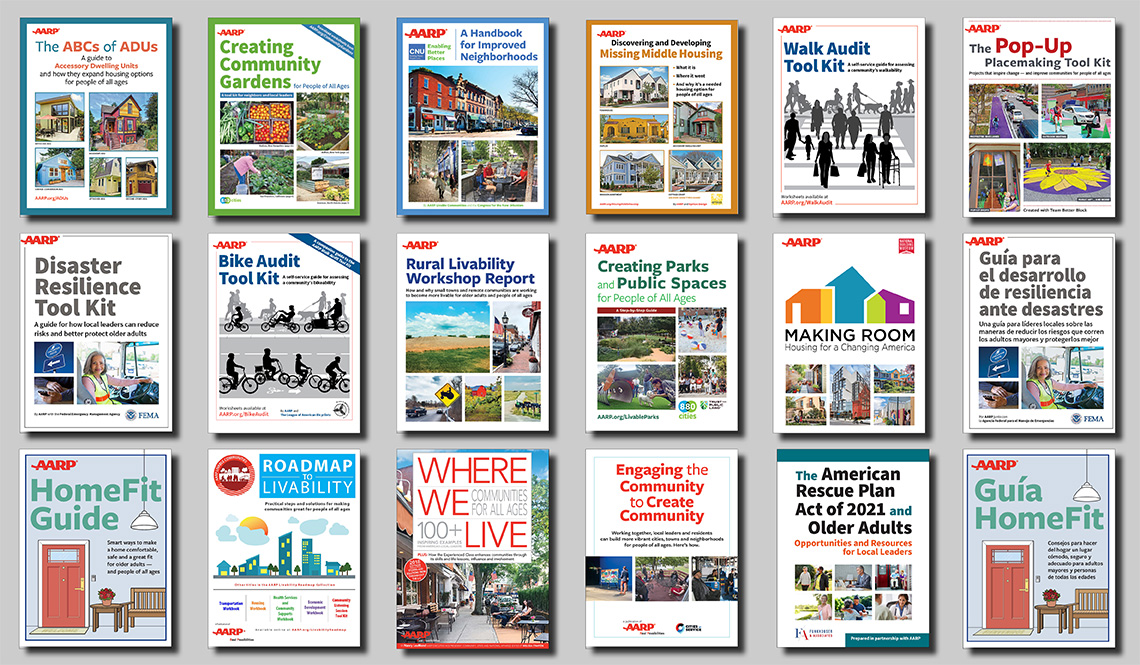Closing the Digital Divide — Together
A 2022 AARP Community Challenge project in Jersey City, New Jersey, gets older residents online
Most of the older residents of Hudson Gardens, a housing complex in Jersey City, New Jersey, are digitally disconnected. So, when the Jersey City Housing Authority received a 2022 AARP Community Challenge grant to address this digital divide, just getting the word out to the residents was a challenge.
“When you show the seniors how to search the web for music or cooking videos, their faces light up. It's really life-changing and exciting when the world of the internet opens to them.”
— Allison Strobel, Jersey City Housing Authority
“Digital inequities significantly impeded our ability to connect with the people we wanted to serve since most had neither internet access nor a device,” says Allison Strobel, who oversaw the project for the Jersey City Housing Authority.
Some 100 local volunteers helped with the needed community outreach work of door-knocking and staffing in-person events. Their efforts resulted in 46 older residents signing up to receive a Wi-Fi-enabled tablet and one-on-one digital literacy lessons from Hudson County Community College students.
Money from the grant was used to purchase Amazon Fire Tablets and provide a stipend to the 12 student instructors, who were selected out of 150 applicants and provided up to 20 hours of tutoring. Each resident received about four hours of training divided into multiple sessions. The students also helped them register for free at-home broadband service through the federal Affordable Connectivity Program.
Lindsey Nunez, 21, brought her experience as her family’s go-to troubleshooter for anything technology-related. “I taught my participants how to turn the tablets on and off, download apps and connect to Wi-Fi,” says Nunez. “I helped one of the women learn how to enlarge the little letters on her cell phone.”
Resident Wanda Ramos, 58, is impressed by her new skills. “I got a new medication and learned how to Google to read the side effects,” she says, adding that she now knows how to download apps, including navigation tools. “I didn’t realize you could use GPS for walking. I thought it was only for cars and buses.”
Best of all, Ramos learned how to voice message her sister and she no longer has to seek out a relative whenever she needs something from the internet. The lessons, she says, gave her “more independence. Now I don’t have to depend on somebody to help me.”
Lessons Learned
An earlier attempt by the housing authority to provide older adults with digital literacy training proved valuable to the 2022 project.
“We learned that we really needed more hands to support one-on-one tutoring for people who are not familiar with technology,” says Strobel. For that earlier project, there was only one tutor. Having the funds for hiring enough tutors “made a big difference,” she says. “Well-paid internship opportunities are few and far between. Building that connection and giving something back to the students while providing a necessary service to our seniors was one of the really great benefits of the funding from AARP.”
Another improvement: providing the residents with portable tablets rather than training them on desktop computers. “Having the residents be able to practice with the tablet at home and then bring it to the communal setting of the computer lab helped foster learning,” says Devin Monserrate, a housing authority digital inclusion coordinator and project supervisor.
An added benefit: Since most of the interns expressed a desire to continue to work with the residents on a voluntary basis, the housing authority now has a robust list of available volunteers.
Advice for Replicating the Project
- “If you're short of hands to lead trainings or provide one-on-one tutoring, lean on local educational institutions, like community colleges. It's going to be a mutually beneficial relationship. There's always going to be a student requirement that has to be filled, whether it be volunteer hours for their student career as a whole or just for a specific class,” says Monserrate.
- The program’s recruitment efforts benefited from the positive word-of-mouth spread by several of the older trainees. “A number of residents who joined the program early told their neighbors and friends about it,” explains Monserrate. “It helped for them to hear from a trusted source.”
- “If you're undertaking a digital inclusion project, you have to account for all three legs of the stool: device, internet access and digital literacy,” says Strobel. “In the past, we thought, ‘We’ll get the devices, and we have a handbook, and the devices have data, so this will work.’ Then we realized that the amount of data wasn’t sufficient and that you can't just give printed material to a new tech user and expect that they'll be successful in teaching themselves.
"With this project, we made sure we had people to provide one-on-one support in addition to a written manual, and that we had a device that was appropriate to the user. Since we had high speed broadband available in the building, we could support people in their application to the Affordable Connectivity Program and be sure they had everything they needed to use the tablet.”
Page published August 2023 | Reporting by Amy Lennard Goehner
Stay Informed
The weekly, award-winning AARP Livable Communities e-Newsletter provides local leaders with information and inspiration for making their town, city or neighborhood more livable for older adults and people of all ages. Subscribe today!
AARP.org/Livable
Find articles, publications and more

